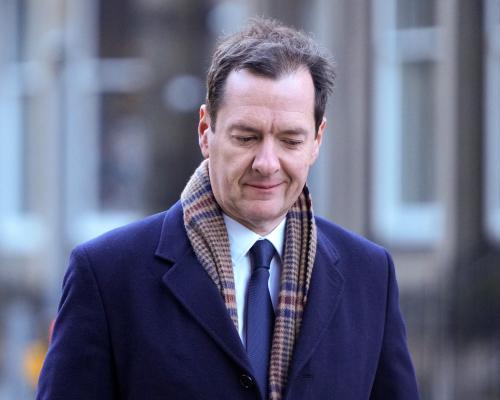
The UK has been left behind in the cryptocurrency boom and is in danger of missing a second wave of demand, according to the former chancellor George Osborne.
Osborne, who has an advisory role at the crypto exchange firm Coinbase, said the country already missed out on the first generation of crypto because the formerly sceptical US had embraced digital currencies under Donald Trump.
“What I see makes me anxious. Far from being an early adopter, we have allowed ourselves to be left behind,” wrote Osborne in a Financial Times opinion piece.
Osborne said the UK was now about to miss a new surge in the crypto market: stablecoins.
Unlike bitcoin, which is prone to extreme fluctuations in price, stablecoins are digital currencies pegged to the value of real-world currencies such as the dollar – and thus designed to maintain a stable value. However, a leading stablecoin, TerraUSD, collapsed in 2022.
“If Britain was the only financial centre in the world we could take our time to evaluate how stablecoins will develop, but we are not,” wrote Osborne. “Singapore, Hong Kong and Abu Dhabi have adopted comprehensive legislative frameworks for crypto asset platforms.”
Osborne also pointed to the passing of the US Genius Act, which creates a regulatory regime for stablecoins – the majority of which are now dollar-backed.
“The crypto revolution may have started with plans to replace the dollar as the world’s reserve currency, but it is reinforcing its dominance. Britain’s current approach ensures the pound won’t even play a supporting role,” Osborne wrote.
US citizens can buy a bitcoin exchange traded fund – a basket of assets that can be bought and sold like shares on an exchange – whereas in the UK retail investors cannot do so.
Osborne accused the UK of prevaricating over stablecoins, with the current chancellor, Rachel Reeves, showing insufficient commitment with a promise last month to “drive forward” on stablecoins, while the Bank of England remained sceptical.
In a speech last month, the Bank of England governor, Andrew Bailey, called for the development of standards that show whether stablecoins pass the test of “singleness of money” – or whether a stablecoin can be exchanged with another form of money one-for-one.
“This hesitation risks irrelevance,” wrote Osborne, who added that it was time for the UK to “catch up”.
Other crypto advocates from the era of the 2010-15 Conservative-led coalition government include another former chancellor, Philip Hammond, who is chair of the crypto firm Copper.
The UK treasury has been approached for comment.







